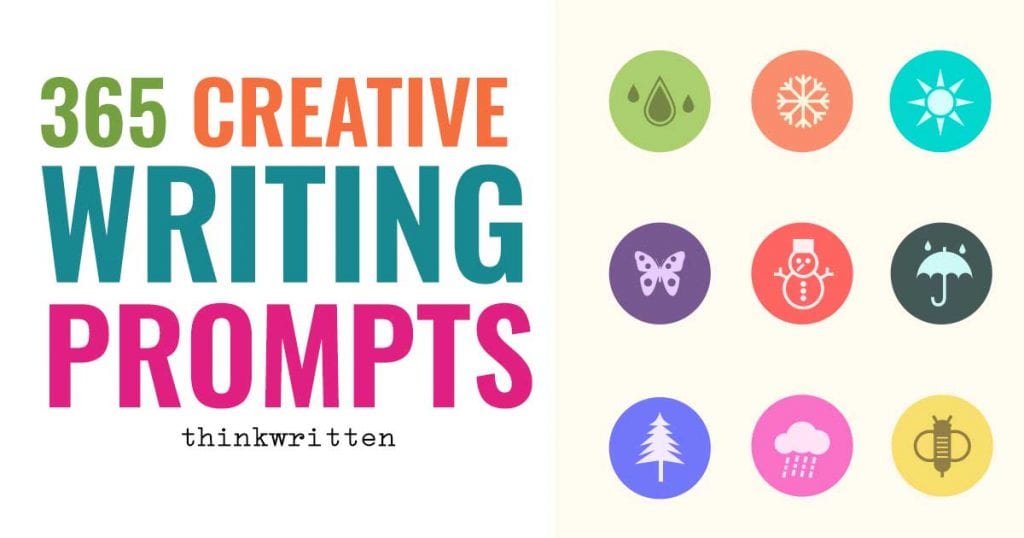We may receive a commission when you make a purchase from one of our links for products and services we recommend. As an Amazon Associate we earn from qualifying purchases. Thank you for support!
Looking to build your creative writing skills? These tips can help you become a stronger, focused, and dedicated master of your craft.

Being a writer is like being an athlete. It takes courage, dedication, daring, and maybe just a tinge of craziness. Like professional athletes, your writing skills require constant exercise to achieve and maintain peak performance.
Unfortunately, there is no machine at the gym to get your writing muscles buff, so what can you do to get in fighting shape as a writer?

Writers Write:
The best way for you to improve your writing skills as a writer is to use them. Write every day. Write something. Write anything. Just get those words moving.
I always have a journal handy somewhere. A pocket steno pad and a ballpoint pen or a writing app on your phone will do you better than nothing at all.
What should you write? Does that question sound silly? Shouldn’t you be working nonstop on your grand novel? Maybe not so much.
Maybe you’re not sure what your major work should be and you need to do a little experimentation. Writing prompts, journaling, and thought experiments are a great way to get started. Guided journaling gets you the best of all worlds. I’m fond of the book 642 Things to Write About, which is about as literal as you can get of a title.

Online resources abound as well – visit our 365 Creative Writing Prompts and pick the first one that strikes your fancy or try your hand at writing some poetry using our 101 Poetry Prompts.
Working on a piece of fiction? Write some character studies to get to know how the inhabitants of your story live, work, and play. Understanding their nature and demeanor make it easier to write for them. Actors get into character. Writers do the same.
Grounding your perspective in the character’s reality is a lot easier if you have a thumbnail sketch to help define their viewpoint and how they will react to any given scenario. This keeps you, the writer, from projecting yourself into the story.
See our list of Character Development Questions for inspiration to really get into the heart and minds of your characters.
Writers Read:

Successful writers are consummate readers. Regardless of whether you are writing the next epic sci-fi thriller or a how-to on a topic of your personal passion, it’s important to see what is going on in the world around you – to see what other writers are doing and how they are doing it.
As a reader, you can read for enjoyment, but as a writer you have the added task of reading to learn more about your craft – what works and what doesn’t. This can help you build your writing skills and strengthen your own unique style and tone.
What should you be reading? My favorite is anything and everything. For a more targeted approach, read your genre, but also reach outside of it to genre-related materials – texts neighboring your chosen milieu, but not of it directly.
If, for example, you are writing a High Fantasy epic set in a Tolkienesque landscape, you might find it useful to read other heroic literature like the Elder Edda – a collection of old Norse mythologies and heroic tales, many of which served as inspiration for the enduring stories of Middle Earth.
It’s also important to read about writing if you really want to learn more on the technical side of things. I personally have kept a copy of William Strunk Jr. & E.B. White’s Elements of Style handy to answer questions on grammar rules and writing conventions since the tenth grade.
It is a small book and not at all entertaining, but, for my money, it is far and away the best reference available. The entries are short, sweet, and to the point. There is no fluff.
Outside of Elements of Style, I wholeheartedly recommend Stephen King’s On Writing: A Memoir of the Craft. Not only is it a phenomenal resource for the budding novelist, it is a fascinating read.
When should you read? Whenever and wherever you can. Lunch breaks, the waiting room for doctor appointments and car repairs, your morning commute (audio books count! And they’re easier to come by nowadays with subscription services like Audible), the porcelain throne – wherever and whenever.
If you don’t have a book on you, you probably have your smartphone, and there are plenty of creative commons and public domain books available for free through libraries and other services.
Writers Commiserate:

Let’s face it. Sometimes, writing is a miserable hobby. The blank page staring at you, deadline looming, and a million distractions screaming for your attention in the background – the kids, the job, the spouse, the cats.
It’s pure agony. But you can’t do without it. You’re addicted. And lucky for all of us, there are support groups that can help you manage your affliction.
Joining a writers’ group is something I admit I was hesitant to do, but there is something deeply cathartic about sharing in someone else’s woes and successes that makes it easier to keep plugging along.
The digital age makes it even easier to get together. Facebook is rife with pages for writers, but if you aren’t ready to publicly declare your desire to be an author yet, Reddit is always there to be your friend and help you strengthen your writing skills.
r/write and r/writing (just join them both) serve as communities for writers of all stripes to come together and share experiences about their craft and their work directly.
You are your own worst critic, which is why it is important for you to reach outside of yourself for feedback when you feel lost or if you feel what you’re producing just isn’t good enough.
Being a part of a community of writers means having someone there to tell you when you’re doing well and how to get there when you’re not. This feedback is essential when you are first learning to build your skills as a writer.
Sometimes, communities grow around competition. NaNoWriMo.org (National Novel Writing Month) runs a challenge every November to celebrate their namesake holiday. The challenge is always the same – write 50,000 words (fiction, non-fiction, etc.), enough to fill a novel-length work, in thirty days.
The challenge is global, but also local, and the organization arranges for write-ins in your area as well as a way to connect socially online with other challengers. And their reach extends well beyond November. Writers and participants run workshops throughout the year. It’s a great way to challenge your creativity and skills, as well as build a network of aspiring authors.
Learn to Close the Door:
Lastly, learn to close the door and eliminate distractions while you write. Shoot your TV. Delete social media apps from your phone. Schedule time for you to do your thing and close the door.
The biggest thing you can do to make yourself a better writer is to allow yourself the time to actually be a writer. The world will still be there when you get back; I promise. For the moment, shut out the distractions of everything else and fill up some blank space.
Do you have any tips for building your skills as a writer? Share your thoughts in the comments section below!





